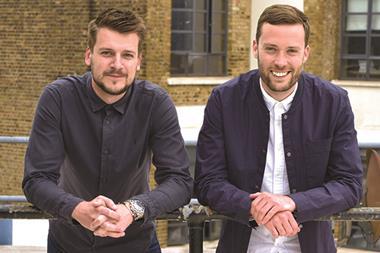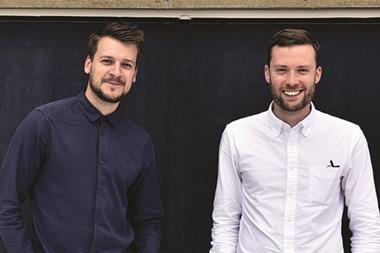Finally, real estate is changing. An industry steeped in traditional views and operating methods is starting to attract the talented recruits who have previously either ignored it or placed it in the reject pile of possible career options.

What is attracting this diverse, young, talented workforce? A growing number of jobs and business activities reflect not only the diversity of other industries, but also the UK’s expanding start-up economy.
A career in real estate no longer has to involve a sharp suit and traditional outlook. Young people are starting to recognise the potential for a varied career that makes a difference to how their towns and cities are shaped.
The lack of innovation in the industry as a whole has until now maintained the wall between commercial property and the people who use it. Young people’s understanding of real estate has been limited to renting or buying a house. But now there are people hammering holes in that wall by exposing it to technology and fresh ideas.
There are several drivers behind this trend. One is the growth of proptech, which is creating an even wider spectrum of property-related jobs. As proptech innovations start to make a difference to the industry, careers in the sector will appeal more to young people who see similar innovations in other sectors.
Another driver is that more young property professionals are leaving traditional roles to either work in an emerging field or set up their own firms, broadening the industry by doing so. At Kontor, we are finding evidence of this.
Wave of start-ups
Several friends have left roles in large agencies to join proptech firms such as VTS and Realla; others have established property development firms, pioneering modern design. Several have left highly regarded investment firms to establish their own funds.
There is now a genuine wave of property start-ups that offer the type of work atmosphere young people today want to be involved in.
In short, our industry has started to provide a platform that allows people to be who they are, rather than ask them to conform to its traditional social demographic.

Until now, it has attracted recruits with a particular attitude. They are also almost universally white, male and middle class (myself included). This has held back the sector; similar employees result in a similar outlook with similar ideas, which is dull to say the least.
If jobs can be more in line with people’s personalities and modern working practices, the industry will achieve higher levels of happiness
If jobs can be more in line with people’s personalities and modern working practices, the industry will attract a wider range of people and achieve higher levels of happiness, which will improve staff retention. Large corporates in any industry are struggling to keep people interested as the wave of entrepreneurialism continues. The emerging workforce is more interested in experiences than cash, so we as an industry need to offer more job variety.
We are getting closer to being a sector that offers variety, innovation and opportunities for all types of people. The RICS’ membership comprises 14% women, according to its Building Inclusivity report, compared with 35% of members of The Apprentice Network. Just 1.4% of the RICS’ members identify as ‘black, Asian and minority ethnic’ compared with 4.5% of the RICS’ trainees - this is abysmal, but heading in the right direction.
It is impossible to attach statistics to the variety of outlooks that a business needs, but it is diversity that makes life interesting and young people’s enthusiasm that injects energy into a business. Should we be doing more to diversify our sector? Absolutely. Picking up the speed of change by broadening our minds can only be a good thing.






























No comments yet